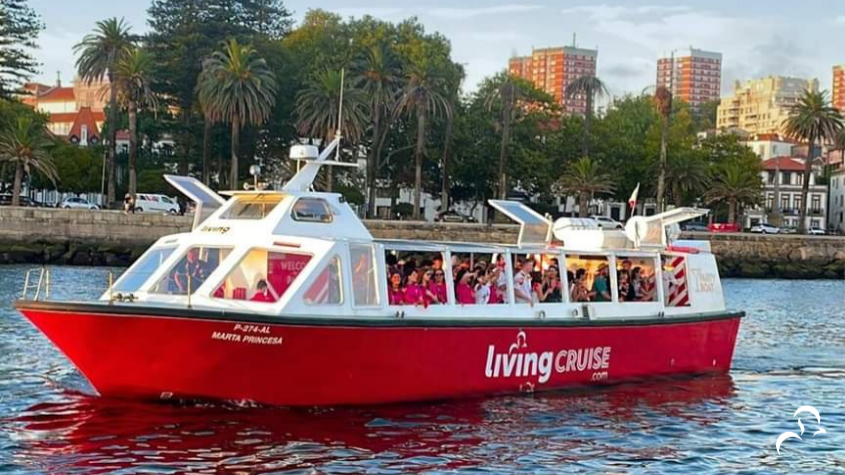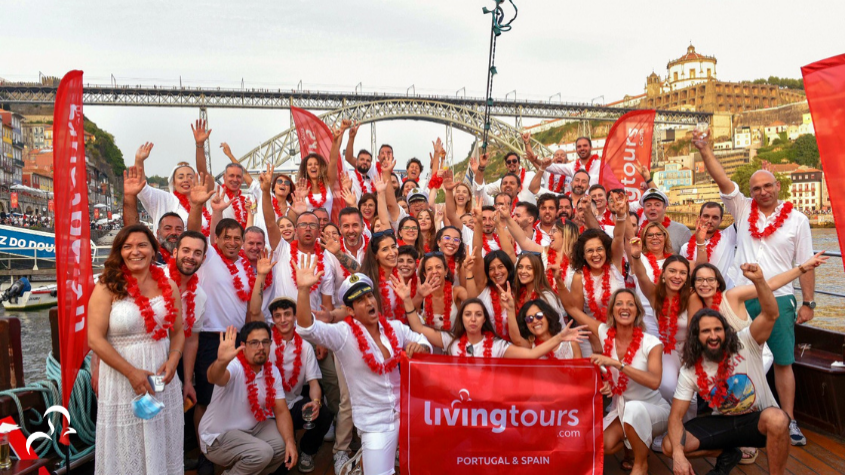
How to Grow Big and Stay Small
In this article I share the philosophy behind our experience at Grupo Living Tours
We have two basic principles: People are important and the secret is to be small.
Shaping companies around people, creating companies, not buying them, being the best not the biggest, grasping all the ideas that arise and moving towards change, is a very practical aspect.
My first proposal is the most important. It means planning and operating the company in order to enable its most important assets, the company's employees, to do their best. This guides the company's priorities, its size and its style.
The second priority is the interests of customers, and the third is the interests of shareholders. This not only reflects the importance we place on our employees, it is also the most positive way to adjust these three priorities.
Rationing backwards, the interests of shareholders depend on the high level of satisfaction of our customers, which enables us to attract and retain customers in an environment of intense competition.
We know that customer satisfaction, which generates the all-important word of mouth advertising and promotes repetition or with your positive testimonial encourages others to choose our companies, depends above all on the high level of performance of our employees. And we know that a high level of service is only possible with a satisfied team that is proud of the company they work for.
That's why the interests of our employees need to come first.
Everyone knows what happens when those priorities are reversed and a shortsighted company gives top priority to the short-term interests of its shareholders.
This sacrifices employees' job security, pay and work environment and sets off a negative chain of consequences that undermine pride, goodwill and enthusiasm.
The unsatisfactory performance that results from unmotivated and hostile employees worsens service quality and erodes customer satisfaction. In the end, the long-term interests of shareholders are effectively harmed by the superficial option of placing them as a priority in the short term.

The fundamental aspect for our employees is the size of the company.
When a company has gladly developed a market and a means of satisfying it profitably, the first impulse is to do the same thing in greater quantity, so directors and chief executives look for growth as an end in itself and Most investors prefer fast-growing companies.
But the first impulse can be deceiving. Growth does not always lead a company to become more successful. More often than you think, it turns a successful small business into a large mediocre company. Why? Because of the unwanted impact of size on the company's main asset: its employees.
At the Living Tours Group, our philosophy has always been to divide and diversify, into small companies and in areas that, although similar, are subdivisions, as was the case with Regular Tours, which gave way to a Transfers company, and later to a Tours company. Private companies, in turn, arose the need for a DMC company and an Online company, later a Tuk Tuk company, a company in Spain, a company of in-person Reception Agencies, a boat company and all managed by Leaders who they were able to exercise Intra-entrepreneurship in an innovative ecosystem and sharing some areas among everyone, such as human resources, marketing, the commercial area and the accounting and financial areas.
All are managed autonomously and with individual results as well as resources and teams, all under a large Living Tours Brand, which unites us but all autonomous and independent leaders capable of managing small independent companies.
The success of a company depends on the enthusiasm, confidence and efficiency of its employees. It is in the team of a tour operator that this is best demonstrated. The attitude, know-how and commitment of employees make or break a tour operator’s reputation.
In fact, a single team member can destroy a tour operator's reputation. Our teams on the ground and in back offices do their best when they are valued as human beings, instead of being seen as mere numbers, on the payroll, when they have easy access to the CEO and Founder and the top management, when they have a product that they are proud of in every aspect, when they are praised and not criticized.
We usually tend to think that small businesses are childish, waiting to evolve into something bigger. When this does not happen, we judge that the company has failed. But I suspect we are completely wrong. There are enormous advantages to keeping mature companies small, even when run by an expansionist entrepreneur as part of a large family of companies.
Let's adopt Japanese Keiretsu culture! Vitality, flexibility and efficiency are precisely the qualities that we also achieve in the Living Tours Group. Being a group of small companies allows us to offer the best environment for teams and administration.
Being small allows us to create new products quickly and efficiently. Being small allows us to react quickly to change anything that our guests don't like. In short, it allows you to do almost everything. And if we can't change, we try to improve as much as possible.
Doing business needs to be fun for our teams, our customers and ourselves. We spend most of our lives at work, so we need to enjoy it.

A well-managed company needs to have high and stable ethical standards, responsibility and integrity in the treatment of customers, staff, suppliers, investors and, last but not least, competitors.
But there is no need for stable patterns of rigid, formal behavior, or for ties and pinstriped suits, which only lead to boredom and conventionality. Directors must make working in companies as pleasurable, interesting and fun as possible. And we need to ensure that the growing generation hears about this in the education system, so that we can attract a pipeline of future talent.
We work hard to be able to entertain our guests too. This requires a lot of attention to detail and the ability to react to customer perceptions and needs. And when things are not working out optimally with a partner, or a tour route is becoming tiring and with little added value, we have the ability to completely reverse direction and act quickly to ensure the satisfaction of our guests. is guaranteed.
Another fundamental point is that creating companies is much better than buying a ready-made company. Within the Living Tours group, all of our companies are developed by competent teams. We give them the necessary resources and let them carry on.
The best part of the entrepreneurial industry are companies managed by enthusiastic teams, who build them from nothing, needing to try everything.
This circumstance attracts the brightest people and brings out the highest levels of commitment, creativity and flexibility. Furthermore, it develops the ability to respond to customer needs and the willingness to react to the challenge of a rapidly changing environment. The contrast is enormous compared to some large companies in decline, which, in their fight for survival, ignore changing contexts in the hope that they will disappear by miracle. They are afraid to take initiatives and make things worse, and only have contact with employees through rigid, impersonal means, or even just through the union.
I'm not against unions, and I'm sure many companies really need them. But one thing is certain for a company, the supreme admission of management failure, is to become so large and so distant in relation to its employees, that in order to communicate with them, it needs to be through an external body.
We must start putting more effort into building new entrepreneurs and ventures instead of supporting obsolete companies that are falling apart.
So, my advice, develop the company around its employees, don't buy ready-made, start from scratch, then try to be the best. At Grupo Living Tours, we believe we deserve the reputation of making our customers' money worth more.
Although our prices are almost always at the most competitive levels, we have learned the importance of competing through quality. Few customers only care about the price. If we want to satisfy them and bring them back we also need to be at the forefront of quality. If we are small we have to be the best.
Three things are particularly important in achieving and maintaining quality: we need to get out of our office and talk to customers, we need to get out of our office and listen and motivate the team, because if they are interested in the customers and are able to respond to them to your requests and needs, we will be one step ahead on the path to satisfying them and we need to keep employees well informed.
Did you like it?
Average votes: 4.17 of 5
Go Back to the Blog












